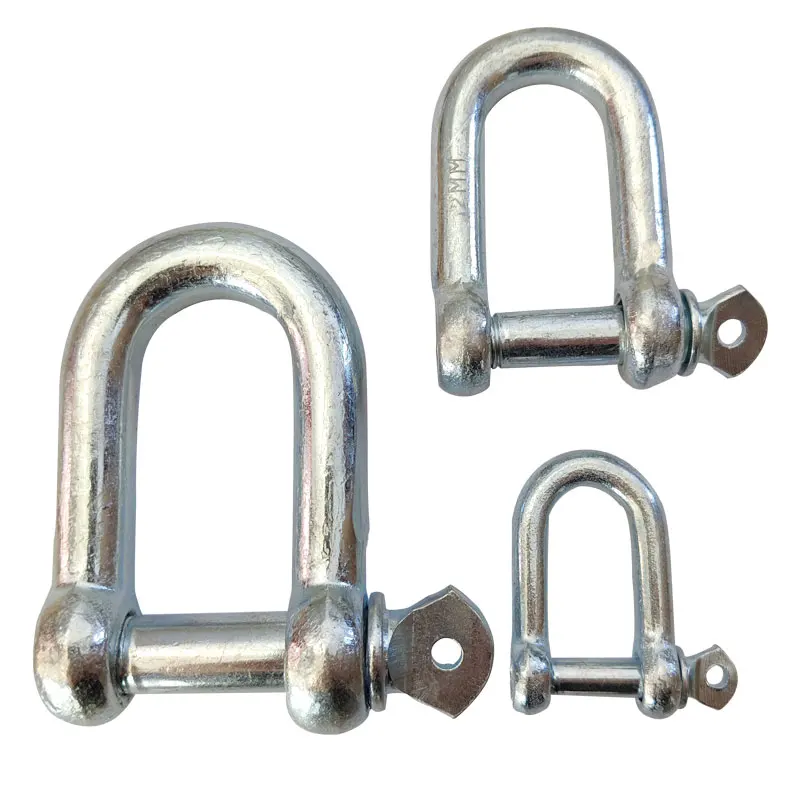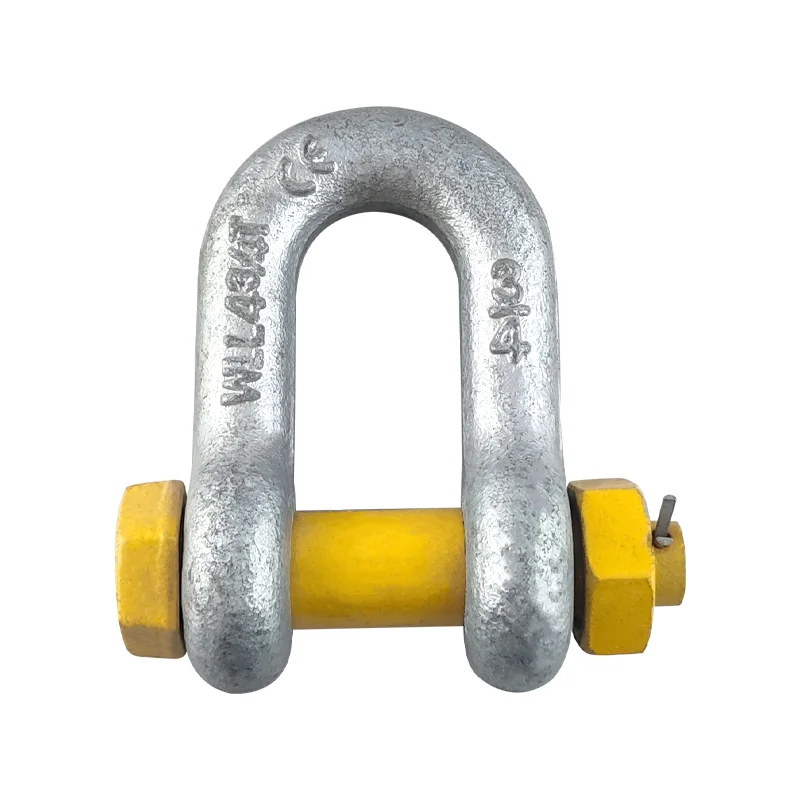- Home
- Products
- About Us
- Application
- News
- Contact Us
Hello, 3rd-graders! Today, we are going to help you understand everything about 3/16 shackles and their use in different works. This is what the shackles look like Have you ever seen a shackle? The loop of a shackle is usually metal or some other strong material and it allows you to hold something together. It is commonly used as a type of shackle, the strength it provides makes it ideal for specific tasks such as lifting or moving heavy objects. Knowing how shackles work is paramount in a wide range of situations, especially for jobs requiring lifting or hoisting things.
So, for lifting or moving heavy weight items to the mill scale you must have few very helpful and safe tools to allow this. One of these tools is the 3/16 shackle. This machinery joins various sections of a device that aids in hoisting or shifting objects which ultimately renders the work simple and convenient.
If you're going to use a 3/16 shackle, first find a strong spot where it can be attached in the bed. This could be a solid beam, tree or anything you can tie onto. Therefore, you can link the shackle to that robust location and also something else you desire to lift up or move. The main thing is to ensure everything has been connected properly. In the event that all is snared as it ought to be, you can without much of a stretch lift or move something and not stress over floundering around where it should fall.
3/16 shackles are actually relevant in a lot of fields and the task you need to perform. To do this, one can often times join together sections of chain or rope when lifting heavy loads. This makes sure that everything is safe and secure when lifting. As well, they are an ideal way to keep tools or items from floating all over the place on a work area while keeping everything in their proper places.

If you are using a 3/16 shackle, it is vital that know how much weight the device can handle. This is what's known as the load rating. Load rating : The most load the shackle will certainly raise without neglecting. Whenever possible, it is always best to use the shackle that is rated for the given weight you are lifting. If you are unsure, ask a grown-up for help!

If you decide to use a 3/16 shackle, weigh in at what weight will be in the air and then considerterthe material of which is made. If the manufacturer uses stronger materials, such as stainless steel, they would last longer and work better than a weak material. This comes in handy, especially when you are moving heavy things!

And that includes a shackle that fits as well. This will assist as a complement to your lifting system. The correct sizing and shape of the shackle play a big roll in how well they work. The shackle you need can come in variety of forms, but the three things to consider are (a)what material is it made from(b), how many tonnes does it lift and(c)is there a budget set aside by your company. Shackles are made for a variety of jobs, and utilizing the correct one ensures you do your job safely.
Own factory ensures that every link starting from 3 16 shackle materials until the finalization of the product is controlled. Owned factories allow companies to directly oversee and control the process of production, thus reducing production costs more effectively.
Prior to placing your order, our expert service personnel can customize products according to your specifications and, after the completion of the production process we have a team of professionals to inspect the quality of the product 3 16 shackle, delivery and quality inspection to ensure that you are satisfied.
our products have passed ce certification covering g30 g43 g70 g80 3 16 shackle and meet the standards we are committed to providing high quality products that meet international standards to meet the growing needs of our customers our products are used in engineering construction in various countries and they still maintain their strength and quality after many years of use
the 3 16 shackle of the company are top-quality with complete specifications models they are sold in over 30 countries including china iran pakistan saudi arabia the united arab emirates